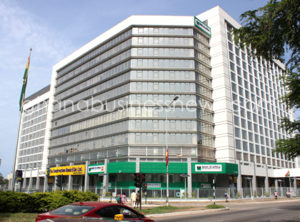iRIS launches development indicators tracker on Ghana
 In about two weeks Ghanaians will go to the polls in a historical election dominated by two key figures – the sitting president, Nana Akufo-Addo and the man he defeated in the 2016 elections, John Mahama.
In about two weeks Ghanaians will go to the polls in a historical election dominated by two key figures – the sitting president, Nana Akufo-Addo and the man he defeated in the 2016 elections, John Mahama.
Mahama is seeking to come back and fulfill his constitutional second term, and Akufo-Addo would be doing the same, seeking the people’s mandate for a second term.
Largely, the campaign is driven more by development indicators and promises, with far less focus on human rights, rule of law, press freedom and freedom of speech.
iRIS Research Consortium, a public opinion polling, market research and data analytics company established in Ghana has therefore launched an online dashboard to track development indicators in the country.
In a press release copied to ghanabusinessnews.com, iRIS says the Ghana Development Indicators Tracker (G-DIT), is a freely accessible online dashboard focusing on the 4th Republic, shows Ghana’s performance on various socioeconomic and governance indicators from 1993 to date.
Commenting, Dr Theophilus Acheampong, Co-Founder, iRIS Research Consortium, said: “This dashboard is particularly important given that the ongoing coronavirus disease (COVID-19) pandemic means that online and media engagements are increasingly being used to supplement the traditional campaigning methods utilised by Ghana’s political parties ahead of the December 2020 presidential and parliamentary elections.
“There is, therefore, a need for citizens to have access to an online portal that shows Ghana’s developmental gains across the various socioeconomic sectors, and which can potentially inform voter decision making,” he added.
iRIS indicates that G-DIT is a one-stop-shop source of information on the country’s performance in health, education, agriculture, energy, employment, finance, gender, tourism, social protection, among others using commonly identified indicators.
According to iRIS, citizens can evaluate and see the relative performance of the country’s two main political parties on over 100 indicators, clustered around three major themes.
The themes are:
- Economy, finances and business environment – economy and public finance, private sector and trade, energy and environment and infrastructure.
- Public sector and governance – government stability and democratic accountability, law and order (security and safety), and corruption.
- Social sectors – education, health and gender, labour, poverty and social protection. The dashboard is developed to allow the ordinary Ghanaian citizen to answer basic questions about the country’s overall development trajectory and the relative contributions of the two main political parties to this development trajectory.
